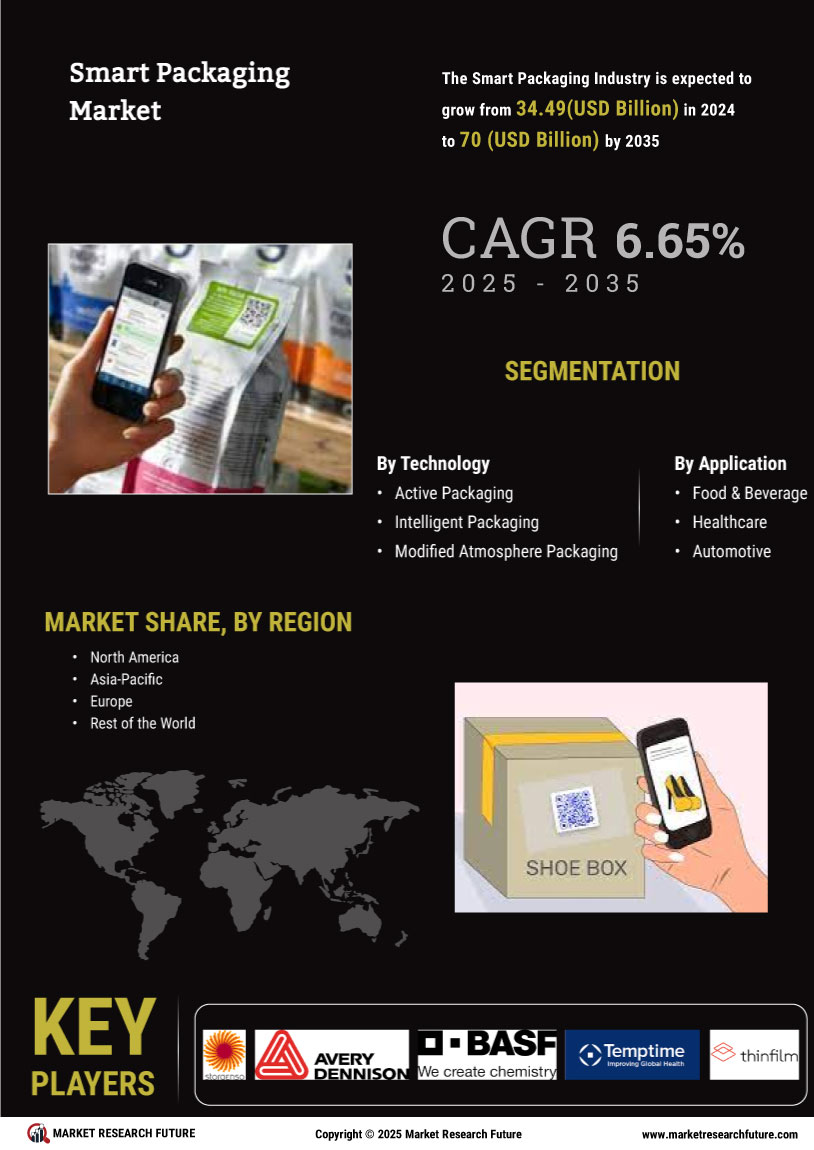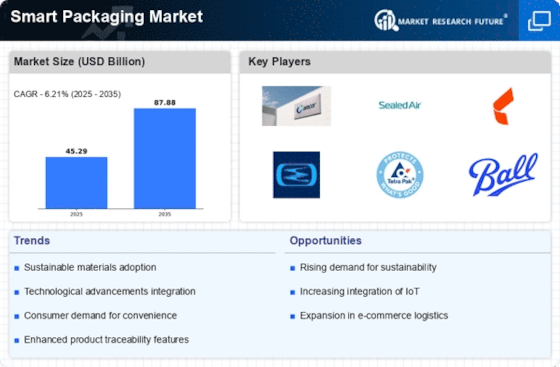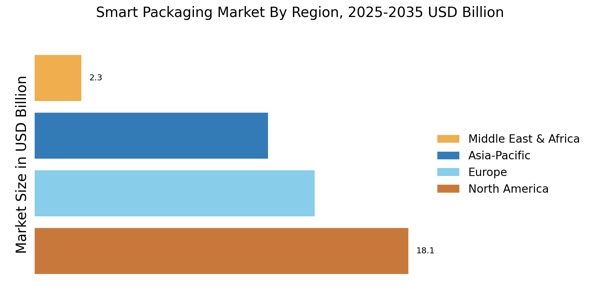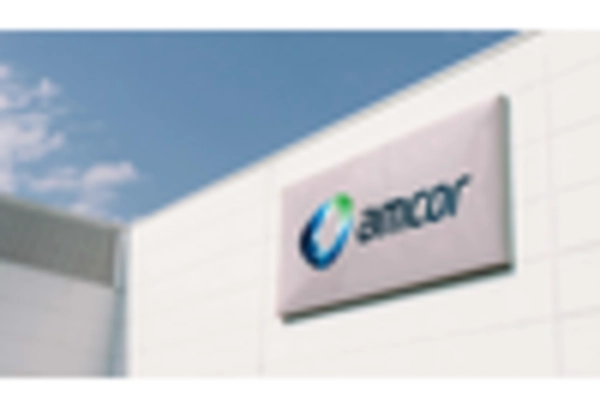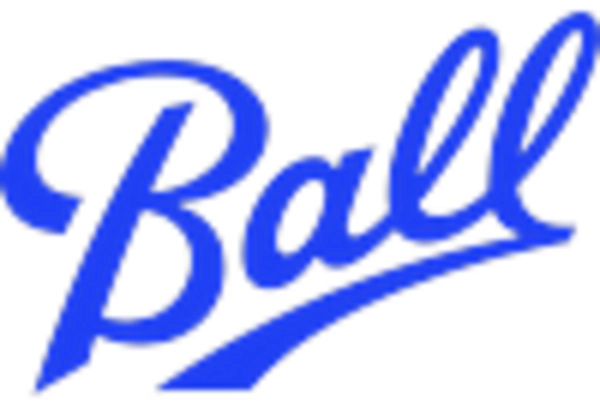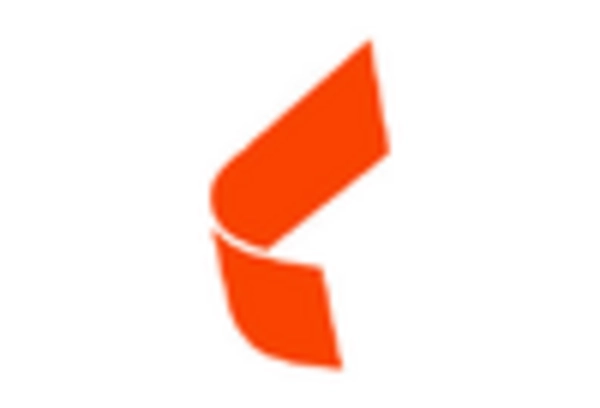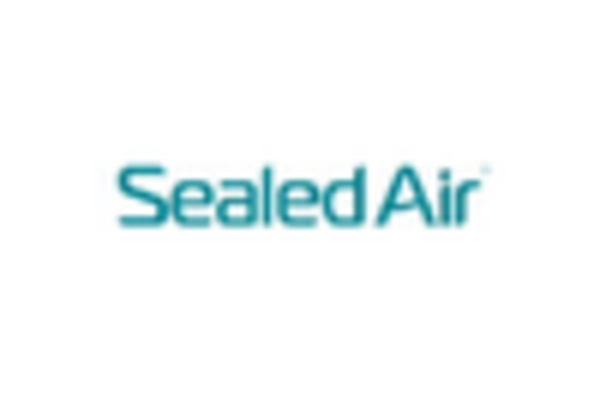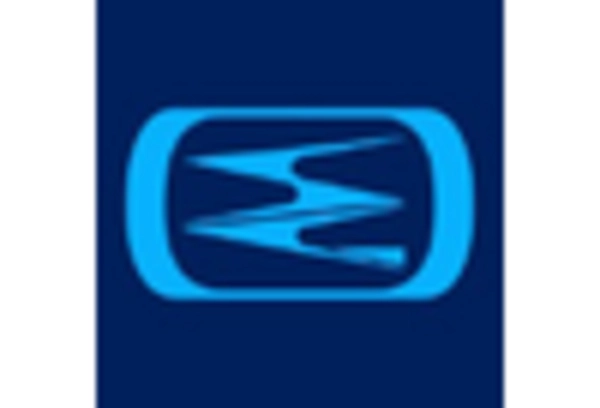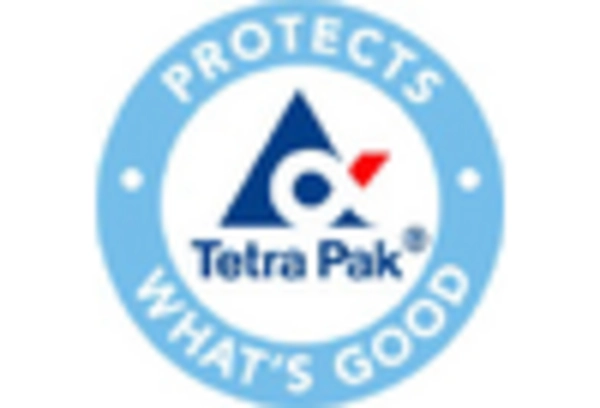Regulatory Compliance
Regulatory compliance is a critical driver for the Smart Packaging Market. Governments worldwide are implementing stringent regulations regarding packaging materials and waste management, compelling companies to adopt smart packaging solutions that meet these standards. For instance, regulations aimed at reducing single-use plastics are pushing manufacturers to explore alternative materials and innovative packaging designs. Compliance with these regulations not only mitigates legal risks but also enhances brand reputation among environmentally conscious consumers. The market for compliant smart packaging solutions is expected to expand as businesses seek to align with regulatory frameworks while also addressing consumer demands for sustainability. This alignment is likely to foster innovation within the Smart Packaging Market, as companies develop new technologies to meet compliance requirements.
Supply Chain Efficiency
Enhancing supply chain efficiency is a significant driver for the Smart Packaging Market. Companies are increasingly recognizing that smart packaging solutions can streamline logistics and reduce operational costs. Technologies such as RFID and IoT-enabled tracking systems allow for real-time visibility of products throughout the supply chain, minimizing losses and improving inventory management. Market analysis indicates that businesses adopting smart packaging solutions experience reduced spoilage rates and improved delivery times, which are crucial in sectors like food and pharmaceuticals. As competition intensifies, companies that leverage smart packaging to optimize their supply chains are likely to gain a competitive advantage. This focus on efficiency is expected to propel the Smart Packaging Market, as organizations seek innovative solutions to enhance their operational capabilities.
Technological Integration
Technological advancements are significantly influencing the Smart Packaging Market. The integration of Internet of Things (IoT) technologies into packaging solutions allows for real-time monitoring and data collection, enhancing supply chain efficiency. For instance, smart labels equipped with sensors can provide information on product freshness and temperature, which is particularly valuable in the food and pharmaceutical sectors. The market for IoT-enabled packaging is expected to witness considerable growth, driven by the need for enhanced traceability and transparency. Furthermore, the adoption of augmented reality (AR) in packaging design is emerging as a novel way to engage consumers, offering interactive experiences that can influence purchasing decisions. This technological evolution is likely to reshape the Smart Packaging Market, making it more responsive to consumer needs and operational challenges.
Consumer-Centric Solutions
The demand for consumer-centric solutions is reshaping the Smart Packaging Market. As consumers seek personalized experiences, packaging that offers tailored information and engagement is becoming increasingly important. Smart packaging solutions that incorporate features such as QR codes and NFC technology enable brands to connect directly with consumers, providing them with product information, usage instructions, and promotional offers. This direct engagement not only enhances customer satisfaction but also fosters brand loyalty. Market data suggests that packaging innovations that prioritize consumer interaction are likely to drive sales growth, as they create a more immersive shopping experience. Companies that invest in consumer-centric smart packaging are better positioned to meet evolving consumer preferences, thereby gaining a competitive edge in the market.
Sustainability Initiatives
The increasing emphasis on sustainability is a pivotal driver for the Smart Packaging Market. As consumers become more environmentally conscious, companies are compelled to adopt eco-friendly packaging solutions. This shift is reflected in the growing demand for biodegradable and recyclable materials, which are integral to smart packaging technologies. According to recent data, the market for sustainable packaging is projected to reach substantial figures, indicating a robust growth trajectory. Companies that integrate sustainability into their packaging strategies not only enhance their brand image but also meet regulatory requirements aimed at reducing plastic waste. This trend is likely to continue, as businesses recognize that sustainable practices can lead to cost savings and improved customer loyalty, thereby propelling the Smart Packaging Market forward.
